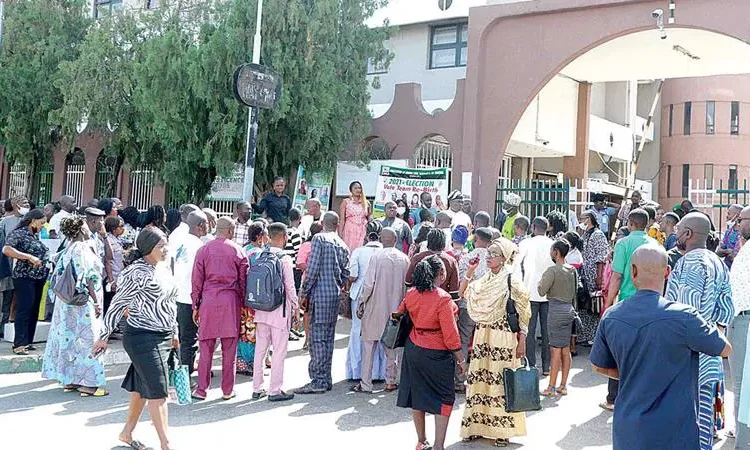Civil servants are in confusion following an announcement that their salaries would be delayed by three months.
Recent reports said federal civil servants employed in 12 government ministries, departments and agencies may face potential delays in payment of their salaries.
This resulted from budgetary constraints caused by the recent implementation of a new minimum wage.
A circular from the director of finance, Jack Odeh, informed public servants of the development, saying the payment of the 40 per cent CONPSS Peculiar Allowance, not initially budgeted for, caused the delay.
According to the information, salaries will be augmented from the Service-Wide Vote, resulting in a slight delay which the Office of the Accountant-General has assured of timely payment once funds are available.
In a circular disseminated to employees of the Voice of Nigeria on October 22, the organisation announced the unexpected delay in payment of salaries for its employees for October to December 2024.
A senior civil servant in the Office of the Head of Civil Service of the Federation who preferred anonymity confirmed the circular, saying about 12 MDAs were affected.
A senior civil servant at the Ministry of Foreign Affairs who also preferred anonymity, said, “In this economy, any delay in salary payments can have dire consequences for families. We are already struggling with the cost of living, and this news is unsettling.
“We depend on our salaries for basic needs. This delay creates turbulence in our financial planning and draws unnecessary anxiety about making ends meet.”
Mr Ephraim Ogar, another civil servant who said they had not received any circular in that respect, expressed said the salary hold-up would sever ties with local businesses that rely on government workers for a stable stream of income.
Most of the civil servants spoken to by our correspondent are not just grappling with the immediate effects of delayed payments; they also fear long-term repercussions.
“We are professionals who have dedicated our careers to public service, but if we cannot rely on the government to pay us promptly, then what is the future of civil service?” a senior staff member lamented, bringing to light concerns about job security and the overall confidence in government operations.
He said in instances like these, employees often turn to local and informal financial networks for support, however, reliance on such means is not sustainable and carries its risks.
“Borrowing from friends or local lenders comes with high interest rates. It is a vicious cycle that makes recovery difficult. With the information concerning the delay in salaries, many of my colleagues have already seeking alternative financing to manage their daily expenses.
“Consequently, this notice of delay has spurred a call for reform in how government institutions allocate budgets and disburse funds assigned for salaries,” she said.





